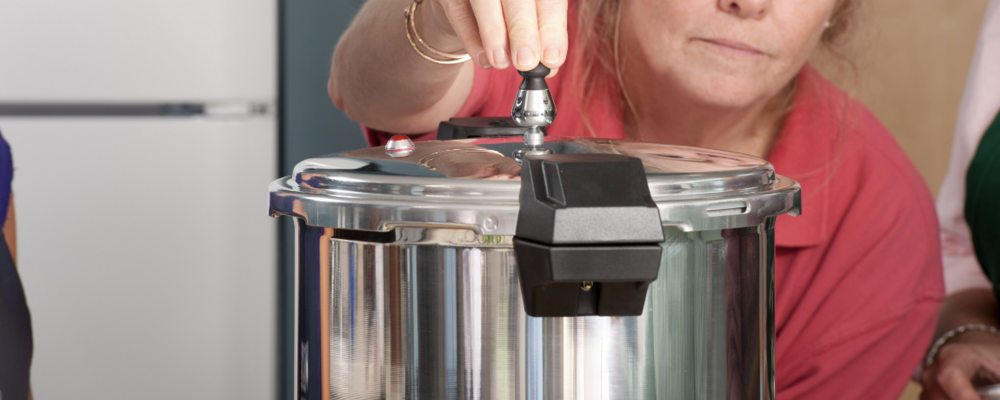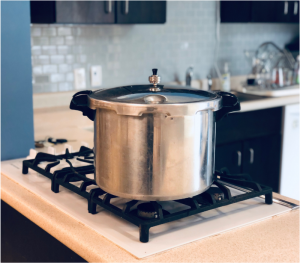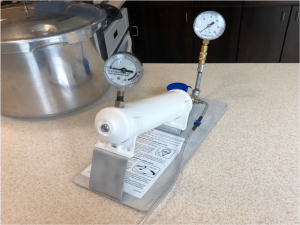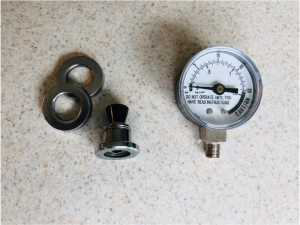
Test Your Pressure Canner Dial Gauge This Spring
By Kate McCarty, Food Systems Professional, University of Maine Cooperative Extension
 Pressure canning is the only way to achieve home canned jars of our favorite Maine vegetables like corn, peas, potatoes, and carrots. Due to vegetables’ low acidity, improperly home canned jars of these foods can create the conditions for the hazardous botulinum toxin to grow. Using a pressure canner to can low-acid foods, like vegetables and meats, produces enough heat to destroy any C. botulinum spores that may be on the produce.
Pressure canning is the only way to achieve home canned jars of our favorite Maine vegetables like corn, peas, potatoes, and carrots. Due to vegetables’ low acidity, improperly home canned jars of these foods can create the conditions for the hazardous botulinum toxin to grow. Using a pressure canner to can low-acid foods, like vegetables and meats, produces enough heat to destroy any C. botulinum spores that may be on the produce.
While many people are intimidated by pressure canning, it’s a safe and relatively easy process. It’s important to ensure that if you are using a dial gauge canner, that the dial gauge is tested annually for accuracy. An inaccurate dial gauge could mean that your food is being processed either at a lower temperature or a higher temperature that you intend. This will result in either overcooked food or potentially unsafe food, as it hasn’t been processed for long enough. So testing your dial gauge for accuracy is important to ensure safe and high-quality home canned vegetables. 
Fortunately, UMaine Extension offers free dial gauges testing services in all of our county offices. Use our directory of Pressure Gauge Testing Services to see who provides the testing in your area. We use a testing kit that measures your gauge against a master, which is calibrated annually for accuracy. The results will tell you if your dial gauge is safe to use as is, if you must make adjustments when you process food , or if it needs to be replaced.

A canner with a weighted gauge does not need to be tested, so double-check that you have a dial gauge before you contact us for testing.
In the picture at left, the weighted gauge is on the left and does not need to be tested. The dial gauge (pictured right) needs to be tested annually for accuracy.
We hope you take time this spring to contact us to test your dial gauge. Then you’ll be all set up for success come harvest season!
